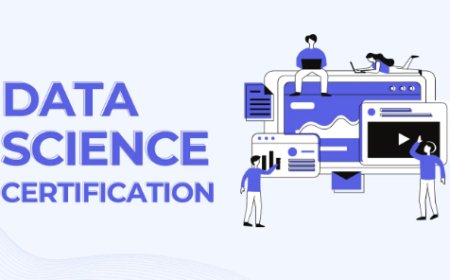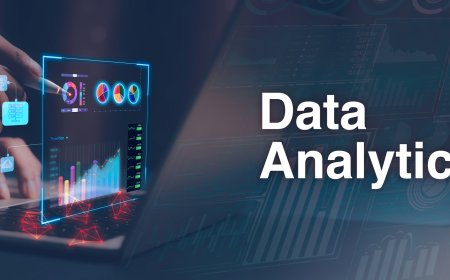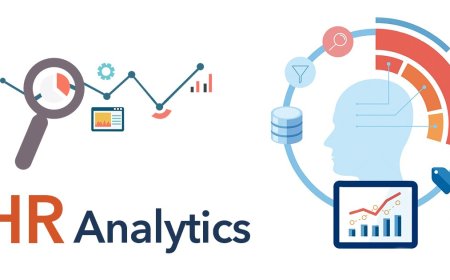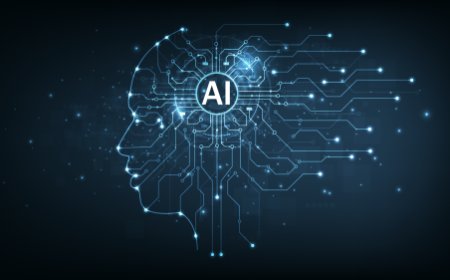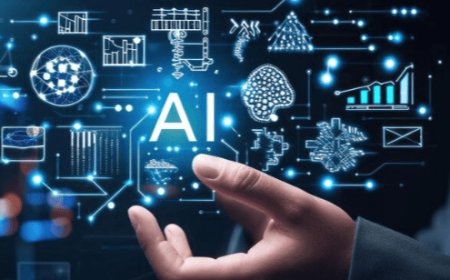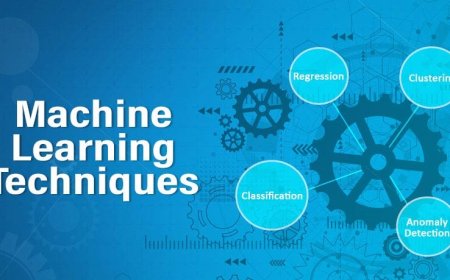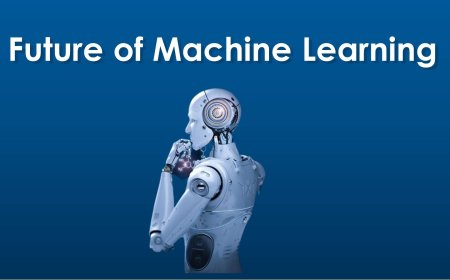Machine Learning for Social Good: Addressing Real-World Challenges
Explore the intersection of machine learning and social impact. Discover how machine learning is used to address real-world challenges and create positive societal change.

Machine Learning for Social Good: Addressing Real-World Challenges is a cutting-edge and ethically-driven approach to harnessing the power of artificial intelligence to tackle some of society's most pressing issues. In an era marked by unprecedented technological advancements, machine learning offers a unique opportunity to make a tangible, positive impact on the world.
Understanding Real-World Challenges
Understanding real-world challenges is a critical aspect of the broader discussion on Machine Learning for Social Good. In this section, we delve into the fundamental issues and dilemmas that society faces, emphasizing the need for innovative solutions. Real-world challenges encompass a wide array of problems that directly impact individuals, communities, and the environment. These challenges can manifest in various domains, including healthcare, education, environment, poverty alleviation, and more.
To begin with, it is essential to identify and categorize these challenges to gain a comprehensive understanding of their scope and implications. Real-world challenges are not theoretical or abstract; they are the pressing issues that affect people's quality of life, safety, and well-being. For instance, in healthcare, these challenges could include the need for accurate disease diagnosis and treatment optimization, while in education, they may revolve around addressing learning disparities and improving access to quality education for all. Each challenge represents a complex problem with its unique set of intricacies.
Furthermore, these challenges are often intertwined, making them even more complex to tackle. For example, poverty and lack of access to education are closely related, as impoverished individuals often struggle to access quality education, perpetuating a cycle of disadvantage. Similarly, environmental challenges like climate change can have cascading effects on healthcare, agriculture, and economic stability.
Machine Learning as a Tool for Social Good
Machine learning, a subset of artificial intelligence, has emerged as a powerful tool with the potential to address some of society's most pressing challenges. Its application in the context of "Machine Learning for Social Good" represents a pivotal shift in problem-solving approaches. This paradigm leverages data-driven algorithms and computational techniques to tackle real-world issues that impact communities and individuals, ranging from healthcare disparities to environmental conservation and education inequalities.
Machine learning offers several key advantages in the pursuit of social good. Firstly, its scalability is invaluable in dealing with large-scale, complex problems. Whether it's predicting disease outbreaks, optimizing educational resources, or mitigating climate change, machine learning models can process vast datasets and generate insights at a speed and scale that would be unattainable through manual efforts alone. This efficiency is particularly critical when responding to time-sensitive issues or when resources are limited.
Furthermore, machine learning facilitates data-driven decision-making, enabling policymakers, organizations, and researchers to make informed choices backed by empirical evidence. This data-driven approach helps optimize resource allocation, track progress, and identify trends and patterns that might otherwise remain hidden. In doing so, it promotes transparency and accountability in addressing societal challenges.
Despite its potential benefits, the application of machine learning in social good initiatives is not without ethical considerations. Ensuring fairness and mitigating bias in algorithms is a paramount concern, as machine learning models can inadvertently perpetuate or exacerbate existing inequalities if not carefully designed and monitored. Additionally, data privacy and security are critical, as sensitive information is often involved in social good projects. Striking the right balance between leveraging data for good and protecting individual rights is an ongoing challenge in this field.
Challenges and Limitations
-
Data Privacy and Security Concerns: Implementing machine learning for social good often requires access to sensitive data, such as medical records or personal information. Protecting this data from unauthorized access, breaches, or misuse is a paramount concern. Striking the right balance between data access for model training and preserving privacy is a significant challenge.
-
Bias and Fairness Issues: Machine learning models can inadvertently inherit biases present in historical data, leading to unfair or discriminatory outcomes. Addressing and mitigating bias and ensuring fairness in these models is a complex challenge. Achieving fairness while maintaining model performance is an ongoing research area.
-
Limited Access to Data: Many social challenges, especially in developing regions or emerging fields, suffer from a lack of comprehensive and high-quality data. This limitation hampers the development and effectiveness of machine learning solutions. Strategies for data collection and augmentation become essential in such scenarios.
-
Ethical Dilemmas: As machine learning models make decisions that affect individuals' lives, ethical dilemmas arise. Balancing the potential benefits with potential harms and ensuring that decisions made by algorithms align with societal values and ethics is a non-trivial task.
-
Technological Barriers: Not all organizations or regions have access to the necessary technological infrastructure and expertise to leverage machine learning effectively. Bridging this digital divide is essential for ensuring that the benefits of machine learning for social good are distributed equitably.
-
Resource Constraints: Developing and deploying machine learning models requires significant computational resources, which can be cost-prohibitive for many organizations, particularly in the nonprofit or social sector. Finding ways to make machine learning more accessible and affordable is a challenge.
-
Interdisciplinary Collaboration: Addressing complex social challenges often requires collaboration between domain experts, data scientists, policymakers, and community stakeholders. Ensuring effective communication and collaboration among these diverse groups is a challenge in itself.
Best Practices and Guidelines
-
Mitigating Bias and Ensuring Fairness: One crucial aspect of best practices in machine learning for social good is the mitigation of bias and ensuring fairness in the algorithms and models deployed. Bias in machine learning can perpetuate existing societal inequalities and worsen the very challenges these solutions aim to address. Guidelines emphasize the need for diverse and representative datasets, regular audits of model outputs for bias, and the use of fairness-aware algorithms to proactively counteract discriminatory results. These practices ensure that machine learning solutions contribute to positive social outcomes without inadvertently reinforcing biases.
-
Data Collection and Management Best Practices: The quality and integrity of data are paramount in machine learning applications for social good. Best practices in this area encompass ethical data collection methods, transparency in data sources, and robust data management systems. Clear guidelines may outline procedures for data anonymization and protection to safeguard sensitive information while still allowing for meaningful analysis. Ethical considerations also involve obtaining informed consent from individuals contributing data to these initiatives, ensuring privacy and respecting the rights of data subjects.
-
Collaboration and Partnership Models: Collaboration is key in the realm of machine learning for social good. Best practices encourage multi-stakeholder partnerships that bring together experts from various domains, including data scientists, policymakers, community advocates, and affected populations. These guidelines promote open dialogue, shared resources, and collaborative problem-solving. Successful projects often involve local communities and stakeholders in the design and deployment of solutions to ensure cultural relevance and long-term sustainability.
-
Measuring Impact and Effectiveness: To assess the effectiveness of machine learning solutions in addressing real-world challenges, best practices emphasize the need for robust impact measurement frameworks. These guidelines provide methods for defining clear goals and objectives, collecting relevant performance metrics, and conducting thorough evaluations. Measuring impact goes beyond technical accuracy; it includes assessing the real-world consequences and social benefits of the deployed solutions. By systematically measuring and reporting on outcomes, practitioners can iterate and improve their models and interventions over time.
Future Directions
Future Directions in the context of the topic Machine Learning for Social Good: Addressing Real-World Challenges refers to the anticipated developments and potential advancements that could shape the trajectory of this field. It involves exploring innovative ways in which machine learning can be leveraged to address a broader range of societal issues and improve existing solutions. This section may also delve into emerging technologies, ethical considerations, and the evolving role of policy and regulation in the field of machine learning for social good. It serves as a forward-looking component of the discussion, encouraging researchers, practitioners, and policymakers to consider the long-term evolution and impact of their work in this crucial area.
Machine Learning for Social Good represents a transformative approach to addressing the complex and pressing challenges that society faces today. By harnessing the power of machine learning, we have the potential to make significant strides in healthcare, education, the environment, and beyond. However, it is essential to navigate ethical considerations, mitigate biases, and ensure responsible use of technology. As we move forward, fostering collaboration, adopting best practices, and staying attuned to emerging trends will be key in our collective efforts to create a better and more equitable world through the application of machine learning for social good.



